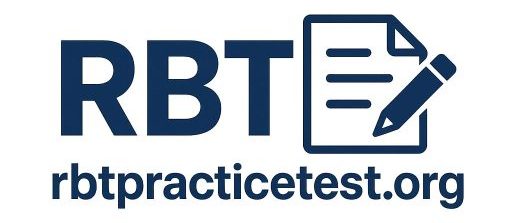RBT salary reflects the essential and hands-on nature of the role in Applied Behavior Analysis (ABA). Registered Behavior Technicians work directly with individuals with autism and other developmental disabilities, implementing behavior intervention plans under the guidance of Board Certified Behavior Analysts (BCBAs). They support clients in homes, schools, and clinical settings, helping them develop communication, social, and daily living skills.
This sharing provides a comprehensive overview of RBT salary in the United States, including national averages, state-by-state comparisons, salary growth by experience, and differences across industries. Understanding these factors allows RBTs to plan their careers more effectively and pursue opportunities that match their skills and impact.
How much do RBTs make?
RBT salary in the United States typically falls between $37,000 and $45,000 per year. This average salary reflects full-time positions across various settings, including clinics, schools, and in-home services.
RBT salary often starts at around $30,000 to $35,000 for those entering the field. As RBTs gain experience and work in higher-demand locations, their earnings can increase significantly. With over five years of experience, RBT’s salary may reach $50,000 to $60,000 or more.
Overall, RBT salary reflects both the entry-level nature of the role and the growing demand for behavior technicians in applied behavior analysis. With further training and certification, professionals in this field can advance toward higher-paying positions such as BCaBA or BCBA.
Average RBT salary by state
High-paying salary states ($44,000 and above)
- Hawaii ($54,222)
- Montana ($48,478)
- Connecticut ($45,739)
- California ($45,691)
- Massachusetts ($44,348)
Mid-paying salary states ($36,000 – $43,999)
- New York ($42,320)
- Maryland ($42,515)
- Washington ($42,307)
- New Jersey ($42,006)
- Oregon ($41,137)
- Virginia ($39,421)
- Colorado ($36,311)
- Florida ($36,020)
- Michigan ($36,607)
- Wisconsin ($35,427)
- North Carolina ($35,730)
- Georgia ($34,718)
- Alabama ($35,552)
- Indiana ($34,902)
- South Carolina ($35,326)
Low-paying states (Below $36,000)
- Mississippi ($38,237)
- Arkansas ($30,812)
- West Virginia ($41,284)
- South Dakota ($34,530)
- Montana ($24,000–$33,000 range in some data)
- Idaho ($25,291)
- Oklahoma ($30,051)
- Louisiana ($29,478)
- Tennessee ($32,320)
- Nevada ($32,670)
- Missouri ($30,643)
- Kentucky ($32,764)
- New Mexico ($34,378)
- Utah ($31,055)
- Kansas ($33,115)
Where do RBTs earn the most?
RBTs make the most money in Hawaii. Massachusetts, California, and New York rank as top-paying locations for RBTs in urban areas. These states not only offer average salaries above $42,000 per year, but also provide dense urban markets, higher demand for ABA services, and strong healthcare infrastructure.
These salary ranges are approximate and may vary based on the RBT responsibilities, experience, education, certification, demand, and employer type. RBTs with advanced training or bilingual skills in high-demand areas often earn more, while entry-level roles or rural positions may fall below the average.
Average RBT salary by experience
Besides the average salary rated by states, RBT salaries increase steadily with years of experience. Entry-level RBTs typically earn around $34,000 per year, while those with over 20 years of experience can earn $43,000 or more. This table will show you what you can earn from the years of your RBT’s experience:
| Years of Experience | Average Hourly Rate | Estimated Annual Salary |
| Less than 1 year | $16.21 | $34,000 |
| 1–4 years | $17.18 | $36,000 |
| 5–9 years | $18.11 | $39,000 |
| 10–19 years | $18.84 | $41,000 |
| 20+ years | $20.00 | $43,000 |
Experience is just one piece of the puzzle. Several factors contribute to RBT salary differences, including:
- Education: RBTs with higher educational qualifications, such as a bachelor’s degree in psychology or special education, often earn more. Individuals with a doctoral degree earn around $2,084 per week, while those without a high school diploma average only $682 per week.
- Location: Salaries vary widely by state and city. Urban areas and high-demand states like California, Massachusetts, and New York offer higher wages to reflect the living costs and service needs.
- Employer Type: Clinics, hospitals, and school districts may offer different pay structures and benefits. Private healthcare settings often provide higher rates than public institutions.
- Certifications and Training: RBTs who pursue specialized training or additional credentials (e.g., becoming a BCaBA or gaining crisis intervention certification) can increase their earning potential.
- Demand: In regions where ABA services are expanding rapidly, salaries tend to be more competitive due to higher demand for skilled technicians.
Understanding how education, experience, and location affect RBT salaries allows technicians to plan their careers strategically and boost long-term earning potential. Staying updated through ongoing training and job market research is essential for making informed career decisions. If you’re aiming for a higher income by becoming a BCBA, take time to compare the roles of an RBT vs. BCBA to determine which career path suits best with your goals.
Average salary of different industries
RBTs can work in a variety of industries, and salaries often reflect the demands, funding, and structure of each setting. Each industry offers unique work environments that influence both compensation and the nature of daily responsibilities.
| Industry | Common Work Settings | Average Salary Range |
| Healthcare | Hospitals, therapy clinics, and private practices | $36,000 – $45,000 |
| Education | Public schools, special education centers, and early intervention programs | $30,000 – $40,000 |
| Social Assistance | Nonprofits, government-funded programs, and social service agencies | $32,000 – $42,000 |
| Other Industries | Private family services, freelance contracts, and independent consulting | $28,000 – $38,000 |
RBT salaries vary by industry, with healthcare offering the highest pay and other sectors providing flexibility or mission-driven work at more modest rates.
Is becoming an RBT worth it?
RBTs can build a stable and fulfilling career, especially for those passionate about helping individuals with autism and developmental disabilities. In high-demand cities like Los Angeles and Houston, RBTs often find steady job opportunities in clinics, schools, and therapy centers.
Although the job can be physically and emotionally challenging, it comes with tangible benefits such as health insurance, paid time off, and retirement plans. Combined with a strong job outlook and the expanding need for ABA services, becoming an RBT is a solid choice for long-term stability and impact.
If you’re ready to pursue this path, start by learning the core RBT knowledge, take RBT practice tests to prepare thoroughly, and then pass the RBT exam to earn your RBT certification. With the right preparation, becoming a certified RBT is just a matter of time.
Conclusion
The RBT profession offers meaningful work and strong career potential for those passionate about supporting individuals with developmental disabilities. Salaries differ based on factors such as state, industry, experience, and education. High-demand areas like California, Massachusetts, and Texas often provide better pay and more job opportunities.
To improve earning potential, RBTs should focus on gaining experience, advancing their skills through additional training, and staying informed about job market trends. With continued growth in the ABA field, RBTs who invest in professional development can achieve both career stability and long-term success.

